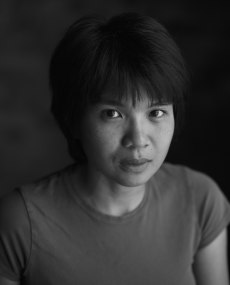-
Advocacy Theme
-
Tags
- Abortion
- Adoption
- Caregiving
- CEDAW
- Disability
- Domestic Violence
- Domestic Workers
- Harassment
- Healthcare
- Housing
- International/Regional Work
- Maintenance
- Media
- Migrant Spouses
- Migrant Workers
- Muslim Law
- National budget
- Parental Leave
- Parenthood
- Polygamy
- Population
- Race and religion
- Sexual Violence
- Sexuality Education
- Single Parents
- Social Support
- Sterilisation
- Women's Charter
Why isn’t there more research about womens experiences in Singapore?
February 24th, 2012 | Gender-based Violence, News, Views
Writer and independent scholar Yu-Mei Balasingamchow explored this question and more during the Feb 16 Roundtable Discussion held at the AWARE Centre.
By Veesha Chohan
At our most recent Roundtable session, Yu-Mei explains the genesis of her project, Troublesome Women, a book consisting of 24 academic essays on women, gender and sexuality in Malaysia and Singapore that she co-edited with academic Adeline Koh.
They initiated this project in 2009 because they believed that the experiences of Malaysia and Singapore could provide deeper insights about the crossroads between gender, modernity and globalisation.
The book features contributors from Singapore, Malaysia, Australia, Canada, the United States, and the United Kingdom. In terms of content, this is a broad interdisciplinary project that does not just focus on gender studies alone, but crosses over into law, history, political science, economics and anthropology.
They thought it was a good idea to start an inter-disciplinary project that put women at the centre, because the majority of academic writings focus only on one aspect of womens issues, and thus fail to offer a broader perspective on womens experiences within the context of a fast-paced and ever-changing global environment.
Yu-Mei explained that the title Troublesome Women helps to capture the readers attention, while also tapping into the idea that women are disturbing the status quo and disrupting social expectations about gender roles.
So why isnt there more research about womens experiences in Singapore? Yu-Mei believed that this might be because women’s studies as a discipline is marginalised in Singapore, almost pushed aside as a ghetto discipline that does not offer any practical skills.
Furthermore, women in Singapore are thought to ‘have it good’, in a modern and prosperous country with high standards of living. They do not necessarily have an ‘oppressed narrative’ like women in some developing countries. Yu-Mei believes that such perceptions exist because of a lack of political consciousness in Singapore, and it is because of this lack of consciousness that people fall back on assumptions about what a womans role in society should be.
Yu-Mei quoted historian Joan Scott, the author of Gender: A Useful Category Of Historical Analysis. In her book, Scott focused on how gender can give meaning to the organisation and perception of historical knowledge, and stated that we should understand gender as an analytical category that signifies power between groups of people. How, why and what processes help to construct distinct masculine and feminine identities is at the core of Yu-Mei and Adelines project, which asks questions about how gender can be used to conceive modernisation and global processes in Singapore and Malaysia.
The Troublesome Women book is split into three sections: a history of feminism and womens movements; gender and the state; and gender and representation.
Two of the essays in the book deal with the AWARE saga in 2009, exploring the media spectacle that ensued as well as whether the discussion about the saga really addressed any real hard-pressing questions about gender issues in Singapore.
Yu-Mei also highlighted another essay from the book, which focused on girls’ schools in Singapore during the pre-war period. This essay reveals the attempt to introduce female education as a progressive force. In the mid-19th century, Western European and American missionaries introduced the Chinese community in Singapore to a new concept: the formal education and training of females in order to preserve and propagate their virtue. Influenced by social and intellectual movements in China, non-Straits Chinese and recent immigrants were determined to improve the minds and actions of girls in order to create a more modernised society. All-girls secondary schools thus flourished in the early 20th century because of these parents conservative attitude towards placing their daughters in co-educational secondary schools.
Ultimately, the editors of Troublesome Women hope to create a network of scholars interested in using gender as a category of analysis, in order to facilitate ongoing research about womens experiences in a Singapore facing an influx of new immigrants and ongoing economic development.
Find out more about AWARE’s monthly Roundtable Discussions here.




